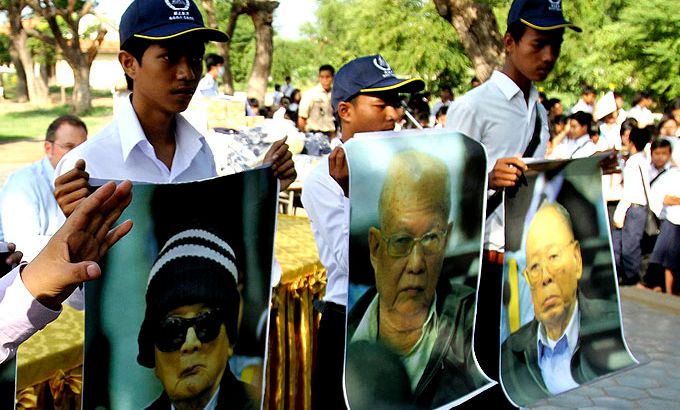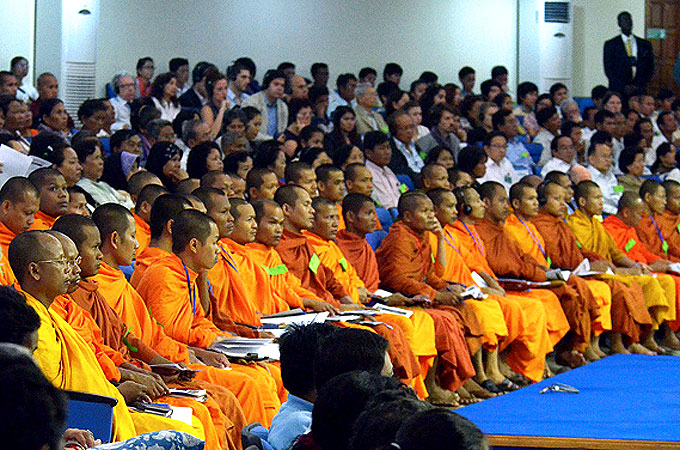Cambodia begins trial of Khmer Rouge leaders
Three top deputies of Pol Pot face genocide and crimes against humanity charges for massacres carried out in 1970s.

Three former Khmer Rouge senior officials accused of orchestrating Cambodia’s “killing fields” massacres have gone on trial before a UN-backed tribunal, more than three decades after some of the 20th century’s worst atrocities.
Judge Nil Nonn read out the names of the three accused Khmer Rouge leaders – Nuon Chea, Khieu Samphan and Ieng Sary – as he declared the trial, known as Case 002, open on Monday in Phnom Penh, the Cambodian capital.
All three defendants, who were in the courtroom accompanied by their lawyers, have pleaded not guilty to charges including crimes against humanity, genocide, religious persecution, homicide and torture stemming from the Khmer Rouge’s brutal four-year rule between 1975 and 1979.
Nuon Chea, 85, was considered the Khmer Rouge’s chief ideologist and “Brother Number Two” to Pol Pot, the group’s former leader who died in Cambodia’s jungles in 1998 almost two decades afte being toppled from power by a Vietnamese invasion.
Khieu Samphan, 80, is a former head of state while 86-year-old Ieng Sary served as the Khmer Rouge regime’s foreign minister.
|
A fourth defendant, 79-year-old Ieng Thirith, Ieng Sary’s wife and a former minister for social affairs, was ruled unfit to stand trial last week because she has Alzheimer’s disease.
Co-prosecutor, Chea Leang said during the trial: “No exceptions were made in the execution of this senseless, brutal crime. Those who resisted were threatened, beaten or shot dead on the spot.”
An estimated 1.7 million people died of execution, starvation, exhaustion or lack of medical care as a result of the Khmer Rouge’s policies, which saw Cambodia turned into a forced labour camp as the Maoist-inspired movement attempted to create a pure agrarian socialist society.
Intellectuals, entrepreneurs and anyone considered a threat to the Khmer Rouge ideal were imprisoned, tortured and often executed.
Previous conviction
The UN-backed tribunal, which was established in 2006, has tried just one case, convicting Kaing Guek Eav, known as Duch, the former head of the regime’s notorious S-21 prison, last July and sentencing him to 35 years in prison for war crimes, crimes against humanity and other offenses.
On Sunday, relatives of the victims wept as they chanted and burned incense near a glass case filled with skulls at Choeung Ek Genocide Center, a memorial built in a Phnom Penh field where the Khmer Rouge staged mass executions.
“I want to remind the victims and ask them to push this trial to find justice for those who were killed by the Khmer Rouges regime,” 80-year-old Chum Mey, one of the only two survivors from the notorious S-21 prison, said at Sunday’s ceremony.
Huy Vannak, the tribunal spokesman called the proceedings, “the most important trial in the world” because of the seniority of those involved.
“It sends a message that the trial, which survivors have been waiting more then three decades for, finally begins,” he said.
